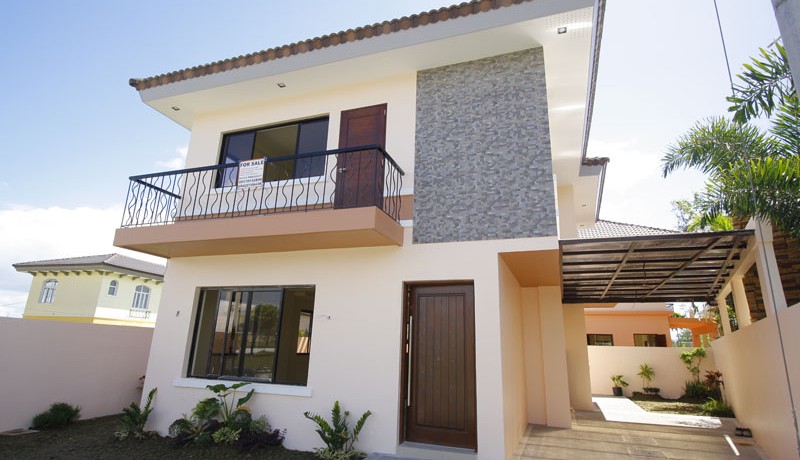Yeeeyy! Congratulations, you’ve come a long way, now you have the heart to own a property, but the quick way?
None really, the truth is, there’s really no quick easy steps in buying property.
Plus no sane person will just let go a hard earned millions without carefully studying the property he/she wants to buy.
Read along, I have listed here 5 quick easy steps to guide you in property hunting.
1. Set the criteria for your desired property.
Determine your purpose of buying. Is it for your family? or your business? Is it for your retirement? Or are you into buy and sell investments?
Determine the property category. Is it house and lot? a residential lot only? or a condominium unit?
Determine your desired location. Is it in Manila? or in Davao? Should it be near your office? Or somewhere far from the city?
Determine your budget. Set the price minimum and price maximum that you can afford. Say Php 2 million to 6 million.
Determine other specifications. Do you need at least 3 bedrooms? do you want a 3-car garage? Is it two-storey?
2. Search properties based on your criteria.
Our website can greatly help you in this stage. By searching your desired property in our website, you save a lot of time and effort.
You don’t need to go to Laguna just to find all the properties in Laguna You just type in your search criteria, and then you select among the results.
You don’t need to go to Laguna just to find all the properties in Laguna. You just type in your search criteria, and then you select among the results.
The website was built for easy comparison of properties. You need to do a lot of comparing so that you get the best out of the available properties.
Besides, you also have to know what preferences you can trade off to get what you want.
Consider also between buying individual property listings vs. development projects.
Most of the time, units in development projects are cheaper especially in its pre-selling stage as compared to resale properties who are more expensive because the community where it belongs is already “developed”.
3. Contact the broker of the property.
Usually, the owner has already appointed someone to sell the property on his behalf and that person is called the broker.
Though some think that buying directly to the owner or developer will save them time and money, a broker will still be advantageous to the buyer for the following reasons:
The broker facilitates the whole transaction process. From setting appointments/meeting, negotiations to the furnishing of legal documents and other requirements from the pre-sale to a post-sale stage, the buyer and seller are relieved from the hassle and stress of the menial work.
Sometimes the seller/owner may not have enough technical knowledge on the legal requirements for the sale of his property.
So it is safe and practical to involve a broker in a transaction to have someone in charge of the documents and the processing work.
Broker trips the buyer to the property sites. The buyer has the privilege of being tripped by the broker to the sites of the properties for free.
The buyer no longer has to worry searching a local city map where the property might be located.
It is the responsibility of the broker to lead the buyer and set appointments for the site visit.
The broker acts as negotiator. During negotiations, the broker is an indispensable party as witness and negotiator for both seller and buyer.
A third party may be necessary to ensure that all agreements is recorded and is put on paper.
If the buyer may find it hard to ask for a lower price to the owner, the broker may negotiate on behalf of the buyer.
A broker can give recommendations of other alternative properties. An owner may try to convince the buyer that his/her property is a good choice, but the broker is a good source of recommendations of other alternative properties to the buyer.
Usually, a broker keeps an “inventory” of properties that he/she is allowed to sell.
Through this, the broker gives the buyer a wider range of choices and saves his time and effort. Instead of looking for 20 owners of properties, the buyer has to find only one broker that has a listing of 20 properties.
The broker can search for more properties on behalf of the buyer. If still the buyer can’t find the property that fits his specification, and it isn’t found on the broker’s inventory, the broker will exert further effort to search other properties.
The broker may use his network of friends in real estate to quickly get more property listings that might fit the buyer’s specification.

The same is true with development projects (e.g. subdivisions, villages, condominium units, etc).
A developer will appoint brokers as marketing arms to sell the units in the project.
But take note that whether you go directly to the developer or course the transaction through a broker, most of the time you still get the same contract price. So why not go with the benefits of dealing with a broker.
4. Computation and Requirements plus Reservation Fee
Check the computation, requirements and pay the reservation on your chosen property.You should consult the other decision makers in your family or organization when finally choosing the property that you want to buy.
Check the property against your set criteria. Decide on the specific lot and block number. Then get a sample computation and the qualification requirements from your broker.
Check if you can afford to pay the downpayment and the monthly amortization. Check also if you can qualify as buyer according to the developer’s standards. If you need to apply for a loan to finance your property, there will be additional bank requirements you may need to accomplished.
If everyone involved in the decision-making agrees and has peace of mind with your choice and you know you qualify and can well afford to pay the total price of the property including the tax and other processing fees, immediately pay the reservation fee.
This is for buyers on development projects. Why the reservation fee?
So that you don’t lose the property while you are still deciding on a preferred payment scheme or you are still preparing the amount needed to pay the property in cash.
5. Decide on a payment scheme, wire the money and sign the documents.
Decide on a payment scheme that you feel comfortable with in terms of your financial capacities.
The usual payment schemes are spot cash, bank financing, or in-house financing.
Then proceed with the payments. In the case of development projects, most buyers are required to prepare postdated checks for all the monthly amortizations.
The developer may also do credit investigations technically assess your capacity to pay. Be prepared to submit the necessary requirements and sign the documents.


